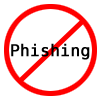| Email Support |
 |
Email Login
New faculty and staff members apply for an email account by printing and completing both the Email application and Code of Ethics forms. Completed forms should be mailed or brought to Amy Graham in Combs 207. For further information please call (859) 622-1987.
Employee_Account_Request (Faculty/Staff Only)
Email Questions

It has come to our attention that many users of the campus email system have been receiving “Phishing” Scam emails. Any response to these emails could cause potential financial loss and identity theft. We strongly encourage you to disregard any emails or websites requesting personal and/or account information. Typically, no financial institution will ever request that you update your account information via online methods.
If you have provided personal or account information in response to one of these "Phishing" emails, please call your financial institution or credit card company immediately.
What is “Phishing”?
Thieves are creating “Phishing” emails and false websites in an effort to "phish" for account information from trusting individuals. Because these fraudulent emails and websites have what appear to be actual logos from financial intuitions (i.e. University of Kentucky FCU), internet based companies (i.e. Paypal or eBay), and other organizations (i.e. CUNA & NCUA), trusting individuals provide their online banking user id’s and passwords, debit/credit card numbers and their associated PIN numbers, as well as other personal information. Within a short period of time, members who have provided their account information will have unauthorized credit and ATM transactions on their accounts.
10 ways to recognize fake (spoof) emails
-
Generic greetings. Many spoof emails begin with a general greeting, such as: "Dear Company member." If you do not see your first and last name, be suspicious and do not click on any links or button.
-
A fake sender's address. A spoof email may include a forged email address in the "From" field. This field is easily altered.
-
A false sense of urgency. Many spoof emails try to deceive you with the threat that your account is in jeopardy if you don't update it ASAP. They may also state that an unauthorized transaction has recently occurred on your account, or claim they are updating accounts and need information fast.
-
Fake links. Always check where a link is going before you click. Move your mouse over it and look at the URL in your browser or email status bar. A fraudulent link is dangerous. If you click on one, it could:
- Direct you to a spoof website that tries to collect your personal data.
- Install spyware on your system. Spyware is an application that can enable a hacker to monitor your actions and steal any passwords or credit card numbers you type online.
- Cause you to download a virus that could disable your computer.
-
Emails that appear to be websites. Some emails will look like a website in order to get you to enter personal information. Legitimate companies never ask for personal information in an email.
-
Deceptive URLs.
- If you see an @ sign in the middle of a URL, there's a good chance this is a spoof. Legitimate companies use a domain name (e.g. https://www.company.com).
- Even if a URL contains the name of the company, it may not be the real site. Examples of deceptive URLs include: www.ebaysecure.com, www.paypa1.com, www.secure-paypal.com, and www.ebaypalnet.com.
- Always log in to a companies site by opening a new web browser.
- Never log in to site from a link in an email.
-
Misspellings and bad grammar. Spoof emails often contain misspellings, incorrect grammar, missing words, and gaps in logic. Mistakes also help fraudsters avoid spam filters.
-
Unsafe sites. The term "https" should always precede any website address where you enter personal information. The "s" stands for secure. If you don't see "https," you're not in a secure web session, and you should not enter data.
-
Pop-up boxes. Legitimate companies will never use pop-ups as they are not secure.
-
Attachments. Like fake links, attachments are frequently used in spoof emails and are dangerous. Never click on an attachment if you are unsure of its origin. It could cause you to download spyware or a virus.
Protect Yourself
Here are some additional ways to protect you:
-
Never provide your personal information to an unsolicited request, whether it is over the phone or over the Internet.
-
If you believe the contact may be legitimate, contact the financial institution yourself.
-
Never provide your password or PIN number over the phone or in response to an
unsolicited Internet request.
-
Review account statements regularly to ensure all charges are correct.
-
To learn more about “Phishing” Scams and Identity Theft or what to do if you have fallen victim, check out the following websites:
Blocked E-mail Attachments
|

